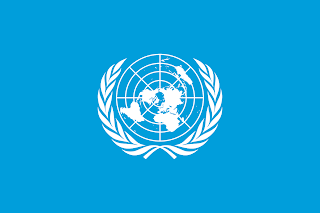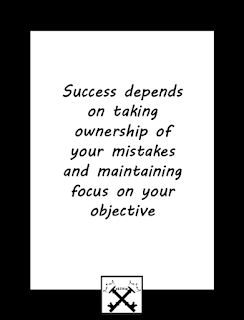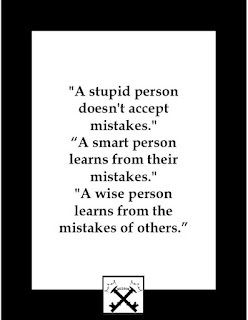Sezgin Ismailov's Blog
October 17, 2025
Political parody or truth?
God gathered all the kings and presidents of countries with claims. Everyone should share their pain and make one request of him.
God, I am the greatest president of America, at least according to the Western media. I can't afford to let Americans sleep peacefully. Imagine if the Indians decided to expel us from their lands. After all, the greediest people on the planet came here. That's why every American sleeps with a gun. I can't not be friends with Putin. With our ally Russia, we divided Europe at the time. Instead of us using them, they want to use us. I can't leave the Arabs alone. They can take the power of the petrodollar. This is our strongest factory. We just print paper labeled "dollar," and the whole world wants to own it. They give us their goods for that paper. Then we trick them into buying a bond. And so we're rich again. Everyone expects to become rich someday. And they don't focus on modernizing their country. I may criticize China, but without their supply of goods, we would lack even basic items such as flip-flops. That's why I only advertise weapons and nothing else. That's all these people are afraid of. God, make me the richest man on earth. And let some crazy president of another country not throw us a bomb that we sold him. Long live America.
I am the master of the largest country. I do whatever I want. After all, most of the resources are in our country. All wars are for land and resources. I have to protect them at all costs. However, they label us as evil because other politicians face their own internal issues and disassociate themselves from me. In the end, everyone will pray to me again. They started making alliances against me. They think I want to obtain my old borders back. Back in the day, Churchill pushed this idea of dividing Europe on us. I would rather not carry many watermelons under my arm. I want them to serve me from afar, not to nag at me. I don't want to go bankrupt because of them. As long as there is plenty of vodka for my people, I don't want anything else.
I am the strongest Jew on earth. I am looking for answers. The Egyptians persecuted us for what? The Romans persecuted us for what? The Inquisition persecuted us for what? Hitler persecuted us for what? Hopefully, it's not because of a few smart people like me. I have proven how fearless I am. Will what I have done stop them from persecuting us, or will it get worse? Will ordinary Jews suffer for me? Will they make me the messiah? Lord, make me the messiah.
God, forgive us. I am an Arab king. We are not guilty. We hide behind religion and use it as we please. Yes, we deny power and rights to women. Christians had their Martin Luther. But we do not have one. Ataturk succeeded but only in Asia Minor. It is beneficial that it did not spread elsewhere. The oil barons put us in these positions, and we do our job. The important thing is that we live in prosperity. Why worry about ordinary people? It is better for them to envy us than for us to envy some other Arab. Do not disturb our peace, Lord.
I lived to become a king. After all, I am the king of the British Commonwealth. Being the head of so many countries is not simple. I speak English; my family has spoken English for two hundred years. We have taught half the world to speak English. If I could, I would make our own royal religion. That way, it will be easier for people to communicate and pray. At least they will understand each other, and they will not be divided into different gods. The gods themselves are not different; rather, they sound different in various languages. Everyone who is in power adjusts it according to his own rules. We have the most prepared politicians, and they play with others as they want. They always do that; other politicians are to blame for our mistakes. Hopefully soon, I will not have to order my generals to draw new borders for the countries. God, let me live out my old age in peace.
God, I am a materialist. But I don't know what to do. Are those from the West so hungry? They come wanting gunpowder—we give it to them. They come wanting paper and thousands of other things. We even showed them how to use paper money. We have been discovering whatever we can think of for 5000 years. We somehow pass it on to other earthlings. They have no satiety. And they accuse us of stealing their technology. Nothing is stolen; our people there are inventing it themselves. They want a better climate, so we provide them with wind generators and solar panels. They want autonomous cars, so we manufacture them. Again dissatisfied. They accuse us of wanting to become hegemons. We have been hegemons for 5000 years, but we say nothing; we listen and watch. We have constructed a stone wall to ensure our safety. We can't stop them. We should build a laser wall. I will be angry, and I will not let anything out of China for a year. Let them learn to work somewhat. They have become very lazy. We are not interested in their excessive demands. If they want to provide us with the raw materials, we can and will do so. Now, we'll have to deliver millions of robots to them. To work for them. Soon interstellar ships will want us to build them to go back from where they came. Lord, let them not bother us. Because teasing the dragon by the tail is an unwise thing to do.
Lord, I am the president of the Indian people. The smartest, but the most corrupt. How can I unite them, as everyone believes in different gods? We can't become rich, but we teach many to be doctors, which the world needs. We are also the most creative, and we manage the best companies, but we do not help each other. At least violence doesn't force our religions upon us. But in reality we are the richest because we have the most children. Lord, somehow limit corruption in the country so that the way of life of the lowest caste can improve.
I am the president of Switzerland. Everyone envies us because we are very liberal. Everyone says we are the richest. Everyone says we are the best place to live. In most cases, this is true. But there is one thing that others do not know. We live well, but not peacefully. People from all over the world entrust us with their money. We are afraid that one day a greedy president will attack us and steal the gold that everyone has entrusted to us for safekeeping. May God protect us from such greedy presidents or kings.
I am the emperor of Japan. Everyone considers us the smartest and most creative. This statement refers to the atomic bombings of Hiroshima and Nagasaki in 1945. We really achieved a lot in a short time. We even became the richest. I think this is due to the mutation from the bombs. Thus far, everything has been satisfactory. But after the 80s, we started to fall into debt. And now we are the most indebted country. I think the bombs are to blame. There is another problem. Our population has started to live over a hundred years. I think it is due to the bombs. God help us. Others should not believe that it is peaceful here, that there are no earthquakes, and that we live a tranquil life. Longevity depends on this perception, which is why people are beginning to move here. Our island barely provides enough resources for our needs.
God, I am your favorite Korean. I have all sorts of titles. I know you treat me like the greatest man on earth. Europeans call themselves developed countries, but they are full of problems and obligations. Arabs brag that women don't recognize them as people. I don't recognize anyone but myself. Africa is rich in resources, yet widespread violence among its people has resulted in persistent poverty. Latin Americans and Africans differ in that Africans kill each other, but crime is rampant in both regions. Debt burdens the so-called rich and democratic Americans, who often sleep with guns under their pillows. The Russians and the Chinese consider themselves allies; however, they offer me no assistance whatsoever. But if some stupid president or king angers me, I will not forgive anyone. I will wipe them off the face of the earth. My request is. Currently, the daily ration of one of my slaves is 700 grams of corn or rice. If I make it 800 grams, won't they get rich and challenge my divine personhood?
God, I am the president of Turkey. I wanted to be part of Europe; they don't want us. I wanted to strengthen the Arab League, but they won't give us leadership because we are perceived as less religious and we have given women rights. I stopped terrorist attacks in our country; they hate me. I am trying to stop corruption; they accuse me of obstructing the opposition. Despite my efforts to act as a mediator between the West and the East, I face negative perceptions. I can't please anyone. God, how can I become good in the eyes of these people?
I am officially the strongest man in Europe. We are the most intelligent, and we are trying to unite. But nationalism is resurgent. After two thousand years of struggle, we had the opportunity to do something wonderful. Our population is decreasing. We need people to look after our elderly parents. However, we only welcome foreigners if they help us become champions and bring us medals; otherwise, we do not want them. We set standards for social life and morality, but we don't get along. However, if we part ways, it will not be long before we resume our conflicts and turn against one another once more. Soon, we will robotize jobs and create a basic income per person. We may have to nationalize factories so that the profits can go to these expenses. So are we going to become capitalist communism or social capitalism? Could you please provide some new terminology for this system to help us avoid any misunderstandings?
I am officially the most powerful person on earth. I head the United Nations. But most of the arrogant politicians prevent me from doing my job. The politicians of all countries complicate, rather than solve, people's problems. This is done to make the people believe that they require their assistance. They only transfer the problems from one party to another. This approach blurs the public's perspective, incites conflict among them, and allows politicians to profit at their expense. But in the past 20 years, life has changed a lot, and people see on social networks what is happening. One day, all the people will simply lynch the politicians. Half of the world still does not have clean water. Over a billion people still go to bed hungry. Politicians ignore these issues by funding projects that not only fail to benefit the people but also exploit them. They discuss new technologies that do not help people's needs but increase the cost of energy. These technologies need a lot of energy, which raises their price, and thus everything else becomes more expensive. Everyone spends money on initiatives that neither improve water quality nor increase food production. What is the effect of having many weapons and no food?
There are many narcissistic politicians who can set humanity back five thousand years or possibly worse. They only measure their narcissism by who is a military force or rich in gold, and so on. Help us, God, the voter, not to vote only for these simple heads who only promise meaningless things.
Do politicians really work for the needs of society? Or do they use politics for their own benefit and to satisfy their egos? Why hasn't anything changed for so long?

October 10, 2025
Need for an international military organization
I recently watched a clip. In the clip, a university professor questions his students about the definition and purpose of law. One student answers ‘to have order and discipline in the country,’ and another answers ‘to make the system work better.’ There were quite a few answers. When one student answered, ‘For justice.’ Then the professor interrupted her response and told the student to leave the hall and never return to his lectures. Everyone was silent. He said he was serious, and she really left the hall. Immediately thereafter, the professor turned to the audience and asked a question. ‘Was I fair with what I did?’. Some students still responded that the student had done nothing wrong and did not deserve the treatment she received. Then the professor said, ‘Then why didn’t any of you stand up to stop what happened in the hall? Why didn’t you immediately stand up for her? Because you were not affected, and when it didn’t concern you, you were silent. What is the probability that such an incident will happen to you tomorrow? Everyone was silent. Now it comes to my mind. For example, our neighbor's house is on fire, and I watch as the owners struggle to put out the fire and save what's left. I don't take any measures to help them. I hope that the fire doesn't spread to my property. But let's assume that the wind gets stronger, and by some chance, the fire spreads, and my house starts burning. What are the consequences? The consequences would be significant for both my neighbor and me. Let's increase the scope somewhat, assuming that the issue is a war in a neighboring country. With a small spark, it becomes horror. So it's beneficial for a person to think somewhat about their actions. No one is insured or immune from such events. I am uncertain about my role in a war, as there are always opposing perspectives. When two people fight, the third one either wins or, in most cases, loses. This is due to the constant presence of bystanders, each of whom draws different conclusions based on their unique perspective. But whether they are right in their assessment is controversial. Therefore, it is imperative to establish an international organization under the command of the United Nations organization with universal authorization to intervene in such cases. When the whole world is against you, you have no chance for injustices to happen. That's my opinion. But politicians for the last hundred years have been thinking of politics as a goal for wealth and power, not for making people's lives better. In the last 30–40 years, all countries have become more autocratic than democratic. The military industry now receives more emphasis than efforts to improve people's lives. Therefore, nothing new has emerged. History has not taught us anything and is repeating itself with different characters.
I allow myself to write a few quotes from Immanuel Kant
No state at war with another should allow itself to engage in such military actions as would make mutual confidence in future peace impossible, such as the use of assassins (percussores), poisoners (venefici), breach of capitulation, incitement to treason (perduellio) in the belligerent state, etc.”
Law should never be adapted to politics, but politics should always be adapted to law. All politics must kneel before law.
The law that lives within us is called conscience. Conscience itself is the bringing of our actions into conformity with this law.
Provide a man everything he wants, and he will immediately feel that the majority is not all.
If justice perishes, human life will no longer have any value.
Everyone is obliged to recognize the human dignity of every person

October 3, 2025
Why Owning Your Mistakes and Staying Goal‑Focused Is the Real Secret to Success
If you've ever scrolled through Instagram, you've likely come across a glossy photo of someone "crushing it" accompanied by a caption that echoes, "Success depends on taking responsibility for your mistakes and focusing on your goal." Yet, for most of us, those two tiny clauses seem like a daunting task. “Taking responsibility for your mistakes”—The Power of the Oops Moment. Why does this matter? When you assign blame to others, such as your boss, the market, or the coffee machine, you are essentially relinquishing control over your life. The moment you own a slip‑up, you instantly become two things:
Control—You decide what the next move is.
Learning—mistakes become data points instead of dead ends.
Everyday example: The missed deadline
Imagine you’re a freelancer and you turn in a project two days late
Avoidance route: “My client kept changing the brief, the internet was slow…”
Ownership route: “I misjudged the scope and didn’t buffer enough time.”
What changes?
In the first scenario, you wasted energy defending yourself.
In the second, you free up mental bandwidth to actually fix the problem—maybe you negotiate a new deadline or streamline your workflow for the next gig.
Thomas Edison and the light bulb
Edison famously said he didn’t fail 1,000 times—he discovered 1,000 ways a filament wouldn’t work. Each "failure" represented a deliberate, documented experiment. BBy taking responsibility for each dead-end, he transformed the entire process into a stepping stone toward his eventual breakthrough.
Quick tip: The “5‑Second Ownership” habit
When something goes wrong, pause for five seconds and answer these three questions out loud:
What exactly happened?
What part did I play?
What can I do right now to move forward?
Write the answer in a notebook or a notes app. Over a week, you’ll notice a dramatic drop in “blame the outside” chatter.
“Focusing on your ‘goal’
Why focus beats hustle
Hustle culture encourages us to "work harder and do more."” But without a north star, all that energy is just… noise. Focus is the mental GPS that tells you where to apply that hustle. A tech startup builds an app for “social bookmarking.” Six months in, the user base stalls. A scattergun approach:They keep adding features, hoping one will stick. They go back to the core data—users love the search function. They focus on enhancing the search function to create a best-in-class experience, rebrand their product, and within a year, they become a niche leader.
The difference? The second team kept a laser focus on the goal (a product people love) instead of getting lost in endless feature creep.
Sports analog: Michael Jordan’s “flu game”
Jordan didn’t let a fever derail his focus on winning Game 5 of the 1997 Finals. He took responsibility for his physical state (rest, hydration, and medication) and kept his goal—winning the championship—front and center. The result? 38 points and a legendary performance. Pro tip: The “One‑Thing‑Only” rule
Pick the single most important action that moves you toward your goal today. Write this action at the top of your to-do list, and do not proceed until it is completed or you have a valid, well-thought-out reason to delay it. It trains your brain to treat focus like a muscle.
By owning the mistake, you uncover what actually needs fixing.
Realign to the goal → you decide the right fix, not just any fix.
Example: A writer’s dreaded first draft
Mistake: “My draft is terrible; I’m a bad writer.”
Ownership: “I spent too much time worrying about perfect sentences instead of fleshing out the story.”
Goal: “Finish a 2,000‑word draft by Friday.”
Result? The writer eliminates perfectionism, completes the main content, and then uses the remaining time for editing, creating a purposeful and goal-driven flow.
Company case study: Netflix’s “Netflix and Chill” pivot
Early 2000s: Netflix mailed DVDs and blamed “late deliveries” for churn.
OOwnership: Executives acknowledged that the physical media business model was restrictive.
Goal: “Be the world’s leading streaming platform.”
Focus: They invested heavily in streaming tech and original content and abandoned the DVD‑only model.
Fast forward: Netflix is now a cultural juggernaut. Their success story is a textbook example of marrying responsibility with relentless goal focus.
How to Put This Quote Into Action RightNow
Step WhatYou Do Mini‑Exercise
1️⃣ Identify a recent mistake.Writeit down in one sentence. “I missed theclient’s deadline last week.”
2️⃣ Own it . Add a “mypart” clause. “I didn’t buffer enough timefor revisions.”
3️⃣ Extract the lesson.Ask,what did this teach me? “I need a 20%time cushion for future projects.”
4️⃣ Clarify your goal.Writea crisp, measurable goal. “Deliver allclient work 24 hrs early for the next three months.”
5️⃣ Align your next action. ChooseONE task that links the lesson to the goal. “Createa master project timeline template with built‑in buffers.”
6️⃣ Review weekly Reflecton the loop: ownership → lesson → action → goal. Sunday: 5‑minute journal entry.
Do this for one mistake each week. Beforeyou know it, you’ll have a personal “success playbook” built on accountabilityand focus. The Takeaway in Two Sentences
Own your slip‑ups so you can turn them into data, not excuses.
Zero in on your goal so every corrective action is purposeful, not scattered. When you combine the two, you’ve essentially built a self‑correcting engine that propels you forward—no matter how bumpy the road gets. Ready to give it a whirl? Grab a sticky note, jot down that recent mistake you’ve been side‑stepping, and pair it with your biggest goal for the month. Stick it on your laptop, coffee mug, or bathroom mirror. Every time you see it, you’re reminded: Success isn’t a myth; it’s a habit of responsibility and focus. Go crush it! 🚀

September 26, 2025
What is the smallest investment you can make in yourself today?
Let's be real for a second. Whether you'reglancing at your retirement fund, scrolling through job postings, or justtrying to navigate the price of groceries, there's one thing that feelsconstant: change. Often, this constant change can be perceived as instability. The stock market experiences fluctuations, the job market adapts to technological advancements, and even the housing market exhibits unpredictable fluctuations. It's enough to make anyone feel twitchy about their future. That's why I love this quote from Mikhail Barshchevsky: "Markets are unstable. Invest inyourself." Simple, right? However, the implications are profound. This piece of wisdom isn't just a clever saying. Firstly, Barshchevsky confronts us with the harsh reality: "Markets are unstable." And he's not wrong. Financial Markets: Stocks go up, stocks go down. Cryptocurrencies soar and plummet. Interest rates fluctuate, affecting everything from your savings to your mortgage. Your financial well-being can feel like it's tied to external forces you can't control. Job Markets: Some industries emerge, and others fade. Gold skills last year might be common this year. Automation and AI are constantly reshaping the landscape, creating both opportunities and anxieties. Economic Markets: Inflation, recessions, and global supply chain disruptions—these aren't just headlines; they directly impact our daily lives and long-term planning. The anxiety of it all can easily overwhelm us, causing us to constantly check charts and refresh news feeds. However, Barshchevsky presents an alternative approach: The Unshakeable Value of Internal Investment. This is where the magic happens: "Invest in yourself." What does that really mean? It's about shifting your focus from the volatile external world to the one asset you truly own and control: YOU. Think of "investing in yourself" as building a diversified portfolio of personal resilience, capability, and well-being. Here's what that looks like in practice: Skills & Knowledge (Your Intellectual Capital): Continuous Learning: The world is changing? Great! Learn new skills. Take an online course, read books, listen to podcasts, master new software, or even learn a new language. The more adaptable and multi-talented you are, the less vulnerable you are to shifts in any one industry. Problem-Solving & Critical Thinking: These aren't just buzzwords; they're superpowers. The ability to analyze, adapt, and innovate makes you invaluable, no matter the market conditions. Health & Well-being (Your Physical & Mental Capital): Physical Health: Constant exhaustion or illness prevents you from conquering the world or even your to-do list. Prioritize excellent nutrition, regular exercise, and adequate sleep. It's the foundation for everything else. Mental & Emotional Resilience: The markets are unstable, but your mind doesn't have to be. Practice mindfulness, seek support when needed, set boundaries, and cultivate hobbies that bring you joy and allow you to decompress. A calm, focused mind is your best tool for navigating uncertainty. Relationships & Networks (Your Social Capital): Building Connections: Networking isn't just for job hunting. It's about building a strong support system of peers, mentors, and friends. These connections can open doors, offer advice, or simply provide a much-needed sounding board. Personal Growth & Self-Awareness: Understanding your strengths, weaknesses, values, and passions allows you to make more informed decisions about your career and life path, aligning your actions with what truly matters to you. The Unbeatable ROI: You Are Your Safest Bet. The beauty of investing in yourself is that it's largely recession-proof. A market crash or a job cut cannot easily devalue your knowledge, health, or resilience. They accompany you on all your journeys. When you invest in yourself, you're not just preparing for market instability; you're building a stronger, more adaptable, and ultimately more fulfilled version of you. You become your most valuable asset, equipped to not just survive unpredictable times but to thrive within them. Therefore, the next time you encounter market fluctuations or economic uncertainty, take a moment to relax. Acknowledge the external reality, but remember Barshchevsky's timeless advice. Stop worrying about what you can't control and invest in yourself instead. What's one small investment you can make in yourself today? I personally like walking in the woods on an eco-trail for at least an hour a day. Share in the comments below if you like!

September 19, 2025
The Uncomfortable Truth About Riches: Are We Chasing Wealth, or Just Relative Advantage?
We all possess it, that faint glimmer of a dream: what would it be like to attain genuine wealth? Imagine not having to worry about bills, traveling the world, and purchasing anything our heart desires. It's a universal fantasy, often painted with scenes of absolute comfort and freedom. But what if the desire goes beyond merely accumulating wealth? What if it's about having more? That's the provocative question posed by the 19th-century philosopher John Stuart Mill: "People would rather not be rich; people want to be richer than others." At first glance, this Mill quote may sound cynical, even dismissive of true ambition. But it is strikingly true, especially in our modern world. Imagine someone who has enough to live comfortably, free of debt, and able to afford a lovely home, nutritious food, occasional holidays, and reliable healthcare. By many objective standards, this person is rich—at least relatively speaking compared to the majority of the global population. However, many individuals in this position still yearn for more. Why? Mill suggests it's because our definition of "rich" isn't a fixed, internal metric. It's an ever-shifting benchmark, constantly calibrated against those around us. The Social Game of Wealth: The "Keeping Up With The Joneses" Phenomenon: It's not enough to have a lovely car; it needs to be nicer than your neighbor's. Your vacation destination isn't just about exploration; it's about being more exotic than your colleague's. Social comparison is a deeply ingrained human trait. We assess our standing, success, and happiness by looking at others. Status and Signaling: Wealth is often a proxy for status. It signals success, power, competence, and even desirability. To be "richer than others" isn't just about material possessions; it's about being perceived as superior and more accomplished. Our drive for social validation and respect can be a powerful engine behind the pursuit of comparative wealth. The Hedonic Treadmill: Even when we achieve a new level of wealth, our happiness often quickly returns to a baseline. We adapt. That new luxury car becomes just "our car." That bigger house becomes "our house." The novelty wears off, and our aspirations reset, often looking to the next tier, the next person with something more. This endless cycle often leaves us feeling perpetually short of true "richness." The Modern Amplifier: Social Media: We have never experienced such constant exposure to the carefully curated highlights of others' lives. Instagram feeds overflow with luxury travel, designer clothes, and aspirational lifestyles. This constant bombardment makes Mill's observation even more potent. We're not just comparing ourselves to our neighbors anymore; we're comparing ourselves to a global highlight reel, often feeling deficient in the process. Absolute Needs: Many people genuinely desire wealth for the security, comfort, and freedom it provides, regardless of how it compares to others. The peace of mind that comes from financial stability is a powerful motivator. Freedom and Impact: For some, wealth is a tool—a means to pursue passions, support causes, create jobs, or build a lifelong legacy. Their motivation isn't necessarily about outcompeting peers but about maximizing their potential for good or personal fulfillment. Defining "Enough": There are those who consciously choose to define "enough" for themselves, detaching from the endless pursuit of "more than." This process often involves a deeper alignment with personal values than societal expectations. What Does Such an Approach Mean for Us? What truly drives our financial goals? Is it a genuine desire for security and comfort, or is there an underlying need for validation, status, or to simply keep pace with (or remain ahead of) our peers? Are we constantly striving to reach a goal that seems unattainable? If the goal is to be richer than others, then achieving true contentment may always be unattainable, as there will always be someone who is wealthier than us. How can we define "rich" according to our standards? Perhaps true richness lies not in the size of our bank account relative to others, but in the abundance of our experiences, relationships, health, and freedom. John Stuart Mill's observation forces us to confront an uncomfortable truth about our ambitions. It challenges us to look beyond the superficial glitter of wealth and ask: are we really chasing a dream, or are we simply trapped in a relentless game of comparison? The answer might just reshape our entire approach to money, happiness, and what it truly means to be "rich."

September 12, 2025
Fear of failure is an Obstacle to Pursuing Goals
I recently was browsing through my booktitled “(anexceptionally engaging read, by the way!). and decided to analyze the quote. “People are afraid of failure, and that’swhy they very rarely take on something that is in their best interest orsomething that is their dream.” This isn’t some revolutionary, unheard-ofrevelation, right? We all know it to some extent.” Think about it. How many times have you hadan idea, a goal, a little whisper of a dream, and then… crickets? Not becauseyou didn’t want it, but because the “what if” monster has reared its ugly head? What if I try to start a side business andno one buys anything? What if the office mocks my request for a promotion? What if I take that art class and mydrawing looks like a toddler’s scribble? What if I start this blog (meta, I know!)and no one reads it? This fear of failure isn’t just an annoyingvoice; it’s a real lever at the door of our potential. It stops us from eventrying to do things that are explicitly good for us or deeply rooted in ourhearts. And here’s the thing: It’s not just aboutgrand, life-changing dreams. It’s also about the smaller, everyday things thatcould make a big difference in our lives. Asking for help, setting boundaries,taking a different route to work, trying a new recipe, and learning a new skill can all make a significant difference in our lives.These are all things that could be “in our favor,” but the fear of messingthings up, looking stupid, or “wasting” time can hold us back. So what’s going on here? We’re so terrifiedof a bad outcome that we completely shut out the possibility of a good one. Toavoid the discomfort of potentially tripping up, we’re choosing to stay wherewe are, even if it’s not where we want to be. But here’s a little secret: Everyone fails.Seriously. Every successful person you admire has a graveyard of failedattempts behind them. The difference? They didn’t let those failures definethem or stop them from taking the next step. They learned, they changed, andthey kept going. What actions can we take to overcome this? Reframe failure: Rather than viewing it as a catastrophic event, view it as a valuable piece of information. “Okay, that didn’t work. Why? What can Ido differently next time?” This isn’t a stop sign; it’s a workaround. Start small. Do you have a big dream? Breakit down into the smallest, most doable first step. Don’t want to fail whilewriting a novel? Just write one sentence today. Don’t want to fail yourpresentation? Just make a plan on the first slide. Embrace imperfection: “It’s better to bedone than perfect” is a mantra for a reason. Go out there, try, stumble, andlearn. It’s all part of the process. Think about the cost of not trying: What’sworse than failure? Imagine looking back years later and wondering "whatif" you had just taken that step. Regret is often much more painful than awrong step. This line from “The Wealth in the GreatKingdom” isn’t just an observation; it’s a challenge. It’s a call to look atwhat we’re hiding from ourselves because of fear, which is often much scarierin our heads than it really is. What is one thing you’ve been putting offbecause of fear of failure? Maybe today is the day to take just one small stepin that direction. Even if it feels like a stumble, it’s still a step forward. What are your thoughts on this? Let me knowin the comments below! Let’s overcome these fears together.

September 5, 2025
The difference between a stupid, smart and wise person
Have you ever wondered what separates theperson who is constantly putting themselves out there from the person who isalways one step ahead and then the person who just seems to understand life ona deeper level? We often throw around terms like "stupid,""smart," and "wise" quite loosely, but there's a fascinating distinction that goes far beyond just IQ. Think of it as differentlevels of understanding of how the world works, or maybe just how well youlearn from those inevitable bumps in the road."A stupid person doesn't acceptmistakes." Now, I'm not talking about someone whostruggles with complex math, because that's just a skill gap or a differentkind of intelligence. I'm talking about someone who keeps making the samebeginner's mistakes, over and over again. You know the type: touches a hotstove, burns their hand, and five minutes later reaches for it again, genuinelysurprised that it's still hot. Or he falls for the same phishing email, evenafter you’ve explained it to him three times. It’s not a lack of information; it’s acomplete failure to learn from experience or simply a complete disregard forbasic common sense. As the old saying goes (often attributed to Einstein),“Insanity is doing the same thing over and over again and expecting differentresults.” Indeed, our "stupid" friend is trapped in a cycle, seemingly impervious to learning. A smart person learns from their mistakes. What about the “smart” person? They arequite different. Once they come into contact with a hot stove, they suffer a burn and swiftly grasp the lesson. The next time they recall the pain, they might even reach for anoven mitt or at least proceed with caution. They excel in problem-solving, comprehending the relationship between causes and effects, and effectively applying their knowledge. They will figure out a more efficient routeto work after getting stuck in traffic, or they will read up on how to avoidphishing scams after a dangerous situation and implement new security measures on their computers. They effectively navigate the world by gathering, processing, and utilizing information. They know that “knowledge is power,” as FrancisBacon said, and they use that power to accomplish their work done and avoidpitfalls. They are adept at adapting and optimizing. "A wise person learns from the mistakes ofothers." This individual does not requireexperiencing harm firsthand to understand that it will be painful. They merelyobserve another individual being struck by a bus and contemplate, "Note toself: avoid playing in the bus lanes." They absorb the experiencesecondhand like a superpower. Example: You’re at work. Brenda inaccounting just spent three days working on a giant report, didn’t save itonce, and her computer crashed. You hear a blood-curdling scream from heroffice. But the wise person? They watched Brenda’scrash from afar, silently opened Google Drive, and set their document to“autosave every minute.” They didn’t have to go through the data lossthemselves. They learned from Brenda’s very public, very painful mistake andproactively avoided that future headache altogether. That’s wisdom. The resultis efficiency on a whole other level. But they will also carefully warn others,explaining danger not just as a rule but as a principle of safety andwell-being. They see the bigger picture, foresee long-term consequences, andoften possess an incredible sense of empathy and judgment. They don’t justsolve problems; they often prevent them or propose solutions that benefit allinvolved, considering not only efficiency but also harmony, ethics, andsustainability. It's not just knowing what to do, but when, why, and the impactit will have. As Aristotle wisely observed, “Knowing yourself is the beginningof all wisdom.” They understand human nature, their limitations, and thevastness of the world around them, often guiding them with a gentle, insightfulhand. So what’s the point? Stupidity is your greatest obstacle. Smartness is being your own teacher. Wisdom is letting the whole world be yourteacher. It’s a reminder to loosen our grip on ourego, to pay attention to the mess people around us make, and to realize thatnot every lesson has to be learned the hard way. So the next time people make amess around us, just smile. They’re giving you a free lesson. All you have todo is be wise enough to accept it.

August 29, 2025
The only problem with a person who always finds fault with another is because of their weakness
This week I had the idea to jot down a fewlines about the quote from The Wealth of the Great Kingdom—"The onlyproblem with a person who always finds fault with another is because of theirweakness"—it's really different, isn't it? It’s one of those lines thatmakes you think, “Yeah, that explains a lot.” The quote's simplicity belies its profounddepth. When we talk about someone who “always finds fault with another,” we’renot just talking about a one-time complaint or a valid complaint. We’re talkingabout someone who seems to have a built-in flaw radar, constantly pointing outwhat’s wrong with everyone else—their choices, their appearance, their work,and their life in general. It’s a pattern, almost a compulsion. The quote states that the only issue withthis behavior is their "own weakness." Aww. However, it's also quitecleverly said. It’s not about the person they’re criticizing; it’s about thecritic themselves. These “weaknesses” don’t necessarily have to do with thembeing physically weak or downright poor people. They are usually internal,hidden struggles. Think about it: Insecurity is a big one: This condition is probablythe most common culprit. If someone is deeply insecure about themselves—theirappearance, their intelligence, their success, their happiness—what's an easyway to feel temporarily better? This can be achieved by highlighting theperceived shortcomings of others. It's akin to saying, "If I can make youfeel inferior, perhaps I'm not as bad as I thought." It's a defensemechanism, a way to deflect attention from their fears and self-doubt. Example: Do you know that colleague who consistently makes sarcastic remarks about others' presentation abilities or their fashion selections? However, if you look closely, they might be quite shy aboutpresenting themselves or dress in a way that blends in, trying not to drawattention. Their critiques might stem from their fear of being judged or theirfeeling that they aren't quite "good enough." Envy and Jealousy: Another classic. Whensomeone sees another person achieving something they secretly desire—be itsuccess, a fulfilling relationship, happiness, or even just a cool newgadget—their dissatisfaction often masks deep-seated envy. Rather than experiencing genuine joy for others, they seek to undermine their happiness. "Oh,she got that promotion, but she probably just got lucky," or "His newcar is nice, but it's probably a money pit." Example: Imagine a friend who constantlyfinds fault with your partner or your relationship. "Are you really surethey're right for you? They seem a bit [insert negative trait]." Often, this response comes from a place where they might be struggling to find a path, or their relationship isn't as fulfilling as they'd like. Lack of Self-Awareness/Personal Fulfillment Sometimes, individuals who are perpetually dissatisfied with others may actually be deeply dissatisfied with their own lives, but they struggle to pinpoint the reason or why. They might feel a lack of purpose, emptiness, or justgeneral unhappiness. They project their unhappiness outward onto everyone elseinstead of doing the hard work of looking inward and fixing their own issues.Blaming others is easier than blaming yourself. Example: Think about folks who spend anexcessive amount of time online, trolling comment sections, or tearing downstrangers. What personal challenges might lead individuals to find comfort in critiquing those they are not acquainted with? It's often a void that they're tryingto fill, a way to exert some kind of power or control when they feel powerlessin their existence. Fear of the Unknown/Change: For some,constantly finding fault in others stems from a rigid worldview and a fear ofanything that deviates from their norm. They criticize different ways ofthinking, living, or loving because they challenge their safe, familiar box,which can feel threatening. For example, a family member may nitpickevery decision a younger relative makes regarding their career or lifestyle,consistently finding something "wrong" with those choices. They mightbe genuinely operating from a place of fear—fear of the unknown, fear thatthings are changing too fast, or fear that their life choices weren't the"best" ones. Therefore, the quote from " The Wealth of theGreat Kingdom" offers insight rather than meanness. Individual struggles often reveal the source of someone's persistent negativity, which typically stems from their own unaddressed flaws. It provides you with an alternative viewpoint, not to justify unacceptable behavior, but to comprehend its underlying causes. And indeed, it also serves as a valuable reflection for ourselves: if we find ourselves habitually scrutinizing others, perhaps it is time for a moment of self-examination.

August 22, 2025
Actual indicators—how do you ascertain whether you have advanced?
Have you ever paused to consider, "Am I truly making progress here?" It's a common thought, particularly when life seems like a never-ending cycle. We're often told progress equals a bigger title, a fatter salary, or a fancier car. And sure, those can be signs. But real, deep-down progress? That often looks a little different, and honestly, a lot more personal. How can you determine if you have advanced? For a moment, let's set aside the conventional scorecard and examine some authentic signs that you're not merely drifting aimlessly but genuinely creating a life you cherish. Your financial situation feels less stressful. Okay, let's be real, money isn't everything. But having enough money and using it wisely is a giant freedom. Think back a few years. Were you constantly sweating over bills? Were you constantly balancing your rent and groceries? A sign of progress: You're not just getting by; you're building a buffer. Perhaps you have established an emergency fund and are actively contributing to a retirement fund, even if the contributions are small. Remember that old, beat-up couch you desperately wanted to replace? Now you can actually plan for that upgrade without sacrificing your ramen noodle budget. It's not about being a millionaire; it's about feeling a sense of security and choice with your finances. You're not just earning more; you're managing it better. You’ve Got More Free Time (And You Actually Use It!) This is a significant achievement. Working continuously is often considered a badge of honor in our hustle culture. But if your idea of "free time" is nodding off on the couch after a 12-hour day, that's not exactly progress. You're intentionally carving out time for things that aren't work. Maybe you used to work 60-hour weeks, and now you're happily clocking 40-45. You're rediscovering hobbies you loved, spending quality time with family or friends without feeling rushed, or just having genuinely lazy Sundays. Remember when you wanted to learn guitar but "never had the time"? You now find yourself picking it up a few times a week. That's not just more spare time; it's a commitment to your well-being and personal joy. You've Got More Control Over Your Life. Ever felt like a ping-pong ball, bouncing wherever life, your boss, or demanding friends pushed you? Feeling like others were always calling the shots? A sign of progress: You are now in control. This could mean: Saying "no" without guilt: no to that extra project that would burn you out, no to social plans you're not genuinely excited about. Setting boundaries: with work, with family, with friends. You're not letting people drain your energy reserves. Making big decisions for you, like changing careers, moving cities, or ending a relationship that wasn't serving you—because you decided it was time, not because you were forced. You’re less reactive and more proactive. You've Kicked (or Are Kicking) Those Pesky Addictions. When we discuss addictions, most people think of substances. But let's broaden that. The term "addiction" includes unhealthy habits, toxic relationships, endless social media scrolling, constant validation-seeking, or even just a nagging reliance on things that don't truly serve you. A sign of progress: You're breaking free from things that held you back. Maybe you've cut down on mindless binge-watching, you're no longer gossiping constantly, you've removed yourself from a draining friend group, or you've finally tackled that sugar craving that ruled your afternoons. It's about recognizing what isn't serving you and actively working to replace those habits with healthier ones. It's tough, but that feeling of regaining control over your habits is incredibly empowering. You're Helping More People (Beyond Just Yourself). True progress often involves shifting your focus outwards. When you're constantly in survival mode, it's difficult to think about much else. But once you've secured a bit more stability and control, your capacity for contribution grows. A sign of progress: You're actively making a positive impact on others. This could be mentoring a junior colleague, volunteering for a cause you believe in, genuinely listening and offering support to a struggling friend, or even just consistently being a reliable, kind presence in your community. Remember when you barely had time to do your laundry, let alone help someone else? Now, you're sharing your knowledge, your time, or your resources without feeling depleted. It's the ultimate sign of abundance—you have enough to share. So, how's your scorecard looking? Progress is not a linear path, nor is it a competition. There will be ups and downs. However, if you're successfully completing even a few of these tasks, it's truly commendable. You're not just living; you're evolving. Keep going, you're doing great!

August 15, 2025
Why would someone turn on the very person who offered them a lifeline?
We’ve all heard the adage, “Lend a hand.” It’s etched into our collective consciousness as the epitome of human kindness, a fundamental pillar of community and compassion. See someone struggling? Reach out! Offer support! Be the hero they need! It sounds wonderful, right? Like something straight out of a feel-good movie. But here’s a rather uncomfortable truth, one that flies in the face of all those warm fuzzy feelings: people sometimes prefer not to receive open help. And believe it or not, in today’s hyper-individualistic, often privacy-obsessed world, this sentiment is becoming even more pronounced. It’s a strange paradox: we yearn for connection but often recoil from direct intervention when we’re at our most vulnerable. Think about it. There’s a quiet dignity in solving your problems, isn’t there? You experience a feeling of victory when you successfully navigate a challenging situation without requiring assistance. When someone swoops in with an outstretched hand, no matter how well-intentioned, it can sometimes feel like an unspoken judgment—a spotlight on your perceived inability. It undermines the independence and self-reliance we all strive for. We curate perfect online personas, showcasing our triumphs and hiding our struggles, only to have someone directly address our very real, uncurated need for assistance. It feels exposed. It feels… less than. Now, imagine you’ve spotted someone in genuine need. A friend is overwhelmed with work, a family member is financially strapped, and a neighbor is struggling with home repairs. Your heart goes out to them. You see a clear path to make their life easier, so you step in. You offer your time, your money, your expertise, and your connections. You roll up your sleeves and immerse yourself fully, sincerely believing that you are performing a worthwhile act. Perhaps there’s initial gratitude, a sigh of relief, and a heartfelt thank you. You feel wonderful. You’ve made a difference! Have you successfully accomplished your mission? Now, prepare yourself for some complexity. What happens a few months down the line? Alternatively, as the cynical wisdom suggests, "After a year, they will drive you insane, labeling you as the greatest evil." It sounds extreme, almost unbelievable. Why would someone turn on the very person who offered them a lifeline? Yet, it happens more often than you might think, and the reasons are as messy and complex as human nature itself. Occasionally, the initial gratitude can morph into resentment. That feeling of being "helped" can slowly eat away at their self-esteem. They might start to feel indebted, or even controlled, by your generosity. Your assisting hand, once a comfort, can become a constant reminder of a time they were weak or struggling—something they’d rather forget. It’s like a shadow that follows them, and in their desire to shake it off, they might try to push you away. Or perhaps, your help inadvertently created a new dependency. Maybe they started relying on you for things they could (or should) have learned to do themselves. When you eventually pull back or set boundaries, they might feel abandoned or even betrayed. You were there, then you weren't, and now they're stuck, though you didn't mean to. The easiest target for their frustration? They relied on you to provide solutions. Then there’s the unfortunate human tendency to shift blame. If issues persist following your intervention, who is more readily blameworthy than the individual who 'intervened'? "If only you hadn't done X," or "Your help just made Y worse." It’s an irrational defense mechanism, a way to absolve themselves of responsibility and project their lingering problems onto an external source. Even if your kindness had nothing to do with it, you are blamed for their ongoing issues. Provide assistance generously, akin to offering someone a mirror during a difficult moment with their appearance. They didn’t ask for it, and now they’re mad at you for noticing. Philosophers might say it’s about autonomy. Psychologists might call it ego defense. I refer to it as “the boomerang of goodwill”—when you extend kindness, it occasionally returns and strikes you unexpectedly. Therefore, does such behavior mean we should all just become hermits, never offering a shred of support? Absolutely not. But it does mean we need to be somewhat savvier, perhaps more nuanced in how we offer help. Instead of just swooping in, perhaps the best approach is to empower rather than enable. Ask, "What do you think would help?" or "How can I support your efforts?" Offer a listening ear, a resource, and a temporary boost, but always ensure the person maintains control over their life. Occasionally, the most valuable help isn't the open, obvious kind. It's the quiet gesture, the subtle nudge, the connection to a different resource, or simply respecting someone's space to figure things out themselves, even if it’s painful to watch. It’s about understanding that true help isn't about making yourself the hero; it’s about fostering resilience, preserving dignity, and acknowledging the complex tapestry of human pride, vulnerability, and the sometimes-uncomfortable dance between giving and receiving. Helping hands can be challenging, but with a little wisdom, we can still extend them in ways that truly uplift, without unintentionally creating future enemies. So what’s the lesson? Help quietly. Help wisely. Help like a ninja—no cape, no credit, just stealth compassion. In the end, the best kind of help is the type that does not seek applause.




